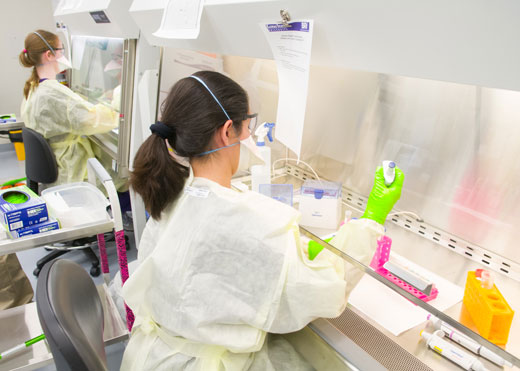
A report released by the Centers for Disease Control and Prevention, Department of the Interior and Department of Agriculture recently determined Kansas State University researchers are tackling the nation’s most prominent zoonotic diseases.
Citing “8 Zoonotic Diseases Shared Between Animals and People of Most Concern in the U.S.,” officials said Kansas State University researchers are actively working on six of the eight diseases named in the federal report: zoonotic influenza, salmonellosis, West Nile virus, emerging coronaviruses, rabies, and Lyme disease – noting the scientists are also addressing other zoonotic diseases of worldwide concern, including Rift Valley fever, Japanese encephalitis, Zika, and Shiga toxin-producing E. coli.
“K-State research is crucial to national security and public health,” Peter Dorhout, university vice president for research, said. “We study several diseases — including zoonotic — that are priorities for the National Bio and Agro-defense Facility, and as we do this work, we are training the workforce needed to provide future biodefense.”
Kansas State University also houses the Biosecurity Research Institute (BRI), which officials said allows comprehensive infectious disease research on threats to human, animal and plant health in biosafety level-3 labs.
“The BRI is like no other facility anywhere else in the world,” said Stephen Higgs, the institute’s research director and university associate vice president for research. “Collaborative research, education, and training activities encompass pathogens of livestock, humans, plants, and food. Some of the animal and plant disease research can be done at no other universities in the U.S.”




